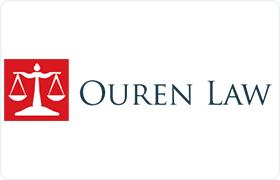Naches Criminal Lawyer, Washington, page 5
Sponsored Law Firm
-
 x
x

Click For More Info:
-
Ouren Law
4101 South Union Street Kennewick, WA 99337» view mapCriminal Defense Dedicated. Straightforward. Tough.
With more than a decade of experience, Attorney Ouren has helped many clients achieve successful results in their family law and criminal law matters.
800-971-6601
FREE CONSULTATION
CONTACTCynthia Marian Pandolfi
Employee Rights, White Collar Crime, Contract, Credit & Debt
Status: In Good Standing Licensed: 28 Years
William A Schuler
Accident & Injury, Criminal, Estate, Traffic
Status: In Good Standing Licensed: 30 Years
 Kimberly Ouren Kennewick, WA
Kimberly Ouren Kennewick, WA Practice AreasExpertise
Practice AreasExpertise
